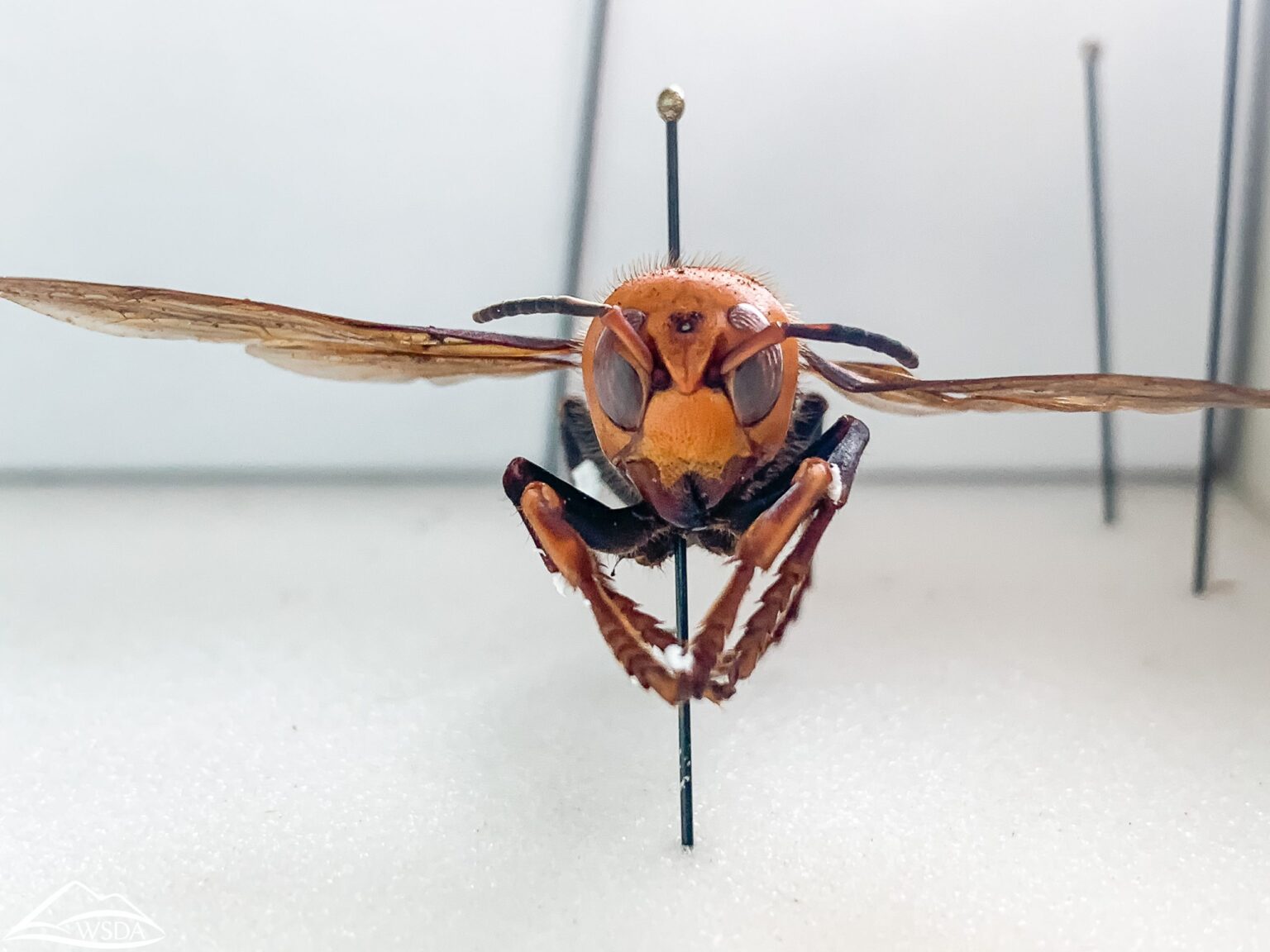It’s actually been less than two years since a nest of Asian giant hornets, colloquially known as murder hornets, were discovered in Blaine, but researchers took the opportunity to discuss the discovery during Washington’s Invasive Species Awareness Week.
Officials from the state Department of Agriculture, the U.S. Department of Agriculture and several universities across the country gathered via Zoom on Friday to share what they’ve learned — and what they haven’t — about the massive bugs.
Asian giant hornets (Vespa mandarinia) are catastrophic for local bee populations and can decapitate an entire hive of bees in just a couple of hours. The hornets are native to Japan, and are the largest hornets in the world at 2 inches in length.
“A hornet worker marks an unlucky nest with a pheromone,” Dr. Chris Looney said during Friday’s presentation. Looney works in the entomology lab at the state Department of Agriculture, and said other murder hornets will go and rabidly attack a marked nest.
“Hornets capture any adults rushing to defend the hive or nest, behead them, and discard the bodies,” he said.
Most of the tracked hornet activity has been in Whatcom County, where the first nest in the United States was discovered in 2020. Three more nests were detected and eradicated in the county throughout 2021: one in August and two in September. A couple of lone bugs have been found further south, including a hornet in Snohomish County in 2021.
Invasive Species Awareness Week, proclaimed by Governor Jay Inslee in mid-February, took place from February 28 to March 4 this year, and was designed to bring awareness to the issues caused by invasive species in Washington state.
“Every year, the costs to prevent, monitor, and control invasive species, combined with the damage to crops, fisheries, forests and other resources, cost the nation an estimated $137 billion a year,” according to Inslee’s proclamation. “Prevention is far less expensive than trying to remove species once they arrive, and an educated and aware public is highly effective at detecting introduced species early.”
Looney says more data needs to be collected on the murder hornets to understand the aggressive species, and scientists are working hard to develop hornet traps.




